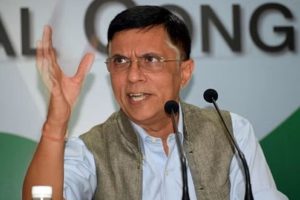There has been a significant increase in jobs from 471.5 million in 2014-15 to 643 million in 2023-24, according to provisional estimates from the RBI’s KLEMS database. Key growth drivers include increased investments, the PLI scheme, and advancements in technology. MSMEs and startups have played pivotal roles in reshaping the workforce landscape.
This was highlighted at a “Conference on Future of Jobs” themed “Shaping Tomorrow’s Workforce: Driving Growth in a Dynamic World” organised by the Union Ministry of Labour & Employment (MoLE), in collaboration with the Confederation of Indian Industry (CII) .
Advertisement
Emerging fields such as green jobs, digital technologies, and service sectors like hospitality, tourism, and healthcare are reshaping the employment ecosystem.
This pivotal event convened policymakers, industry leaders, and experts to deliberate on the evolving employment landscape and curate strategies for a future-ready workforce in India.
Speaking on the occasion, Minister of Labour and Employment & Youth Affairs and Sports Dr. Mansukh Mandaviya stated, “To synergise education and employment, skill development must be at the core of our efforts. By fostering innovation, enhancing productivity, and preparing individuals for the workforce, we are creating jobs and building a global talent hub.”
He also highlighted India’s potential to address global workforce shortages through initiatives like the Mutual Recognition of Skills and Standards.
By fostering strong industry-academia linkages, we can create a skilling model tailored to India’s unique needs. Skilling should go beyond certificates and focus on equipping individuals with practical expertise to meet the dynamic demands of the industry and self-employment sectors. It is time to rethink our approach to skilling—rather than focusing solely on certifications, the goal should be to develop professionals with the actual skills needed to excel in the industry.
Union Secretary, Ministry of Labour & Employment Sumita Dawra said to thrive in a rapidly evolving landscape, three key questions have emerged: How do we develop a digitally proficient workforce equipped to navigate an increasingly tech-driven job market? What strategies can we employ to build a truly inclusive workforce, where diversity is valued, and everyone is given equal opportunities? Additionally, as industries prioritize environmental sustainability, how can we integrate eco-friendly practices and values into our workforce culture?
“A skilled and adaptable workforce is crucial for attracting investments in key sectors such as healthcare, manufacturing, logistics, and green jobs. Strengthening labour-intensive industries ensures equitable opportunities for diverse demographics, including those with limited access to advanced education,” she emphasised.
She highlighted India’s position as the “GCC Capital of the World” with 1,700 Global Capability Centres (GCCs) employing over two million people—a number projected to grow significantly by 2030.
The conference culminated in actionable policy recommendations to prepare India’s workforce for a dynamic global economy. Among the key strategies include enhancing skill development and technological upskilling, fostering public-private partnerships for inclusive growth, promoting digital literacy and eco-friendly workforce values and prioritising inclusivity and sustainability in workforce development.
By addressing these key focus areas, India is poised to become a leader in the global employment landscape, creating a future-ready workforce that not only meets domestic demands but also addresses global workforce challenges.
Mr. Vinod Sharma, Chairman, CII National Committee on Electronics Manufacturing & Managing Director, Deki Electronics Limited, proposed an integrated national employment policy to streamline employment schemes across ministries and states. He recommended offering incentives to companies that provide upskilling and reskilling programs and urged increased investments in apprenticeship and earn-and-learn programs to build a more adaptable workforce.
Mr. Rajendra Mehta, CHRO, Suzlon Group, emphasised that India ranks fourth globally in renewable energy employment, with 1 million jobs in 2023. He stated, “The transition to clean energy is set to create 10.3 million new jobs globally by 2030, driven by a target of 500 GW of non-fossil fuel energy capacity.
Mr. Ajay Dutta, Vice President – HR, Indian Hotels Company Limited, stated, “India’s tourism industry is rebounding post-pandemic, driven by states like Goa, Himachal Pradesh, and Kerala. Emerging trends include spiritual, rural, and wellness tourism. With a vision for Viksit Bharat, the industry aims to reach $3 trillion by 2047, generating significant direct and indirect employment opportunities.”
Mr. Dilip Sawhney, Chairman, CII National Committee on Smart Manufacturing & Managing Director, Rockwell Automation India Ltd, said, “Smart Manufacturing is key to achieving India’s goal of a $7.5 trillion economy, contributing 25% to GDP and making India the second-largest global manufacturing hub. With 90% of firms in the sector being MSMEs, competitiveness is critical to creating over 100 million highly skilled jobs and integrating India into global value chains.”
Mr. Sukumar K, CEO, TVS Supply Chain Solutions Ltd, remarked, “Globally, the logistics sector is set to reach $18 trillion by 2030, while in India, it is expected to grow to over $350 billion, driven by rising e-commerce, manufacturing incentives, and transformative policies like the PM Gati Shakti National Master Plan, making it a cornerstone of economic growth and employability.”
Mr. Anil Syal, President, Safexpress Pvt Ltd, added, “The Indian warehousing market, growing at a 14–15% CAGR, is set to reach $35 billion by FY 2027. Key drivers include AI, automation, sustainability, and real-time visibility through autonomous systems and data analytics. Emerging trends like intra-storage robotics and sustainable transportation are reshaping workforce dynamics and supply chain operations.”
Dr. Ashutosh Raghuvanshi, member, CII Healthcare Council & Managing Director & CEO, Fortis Healthcare, highlighted, “Healthcare contributes 10% of global GDP (WHO, 2020; World Bank, 2023), with India’s sector growing 7-10% annually (Economic Times, March 2024).
Dr. Shubnum Singh, member, Governing Body, Healthcare Sector Skills Council, noted, “AI is welcome in healthcare in an augmented role. We should go forward slowly and steadily while strengthening digital skills in healthcare and supporting innovation.”











